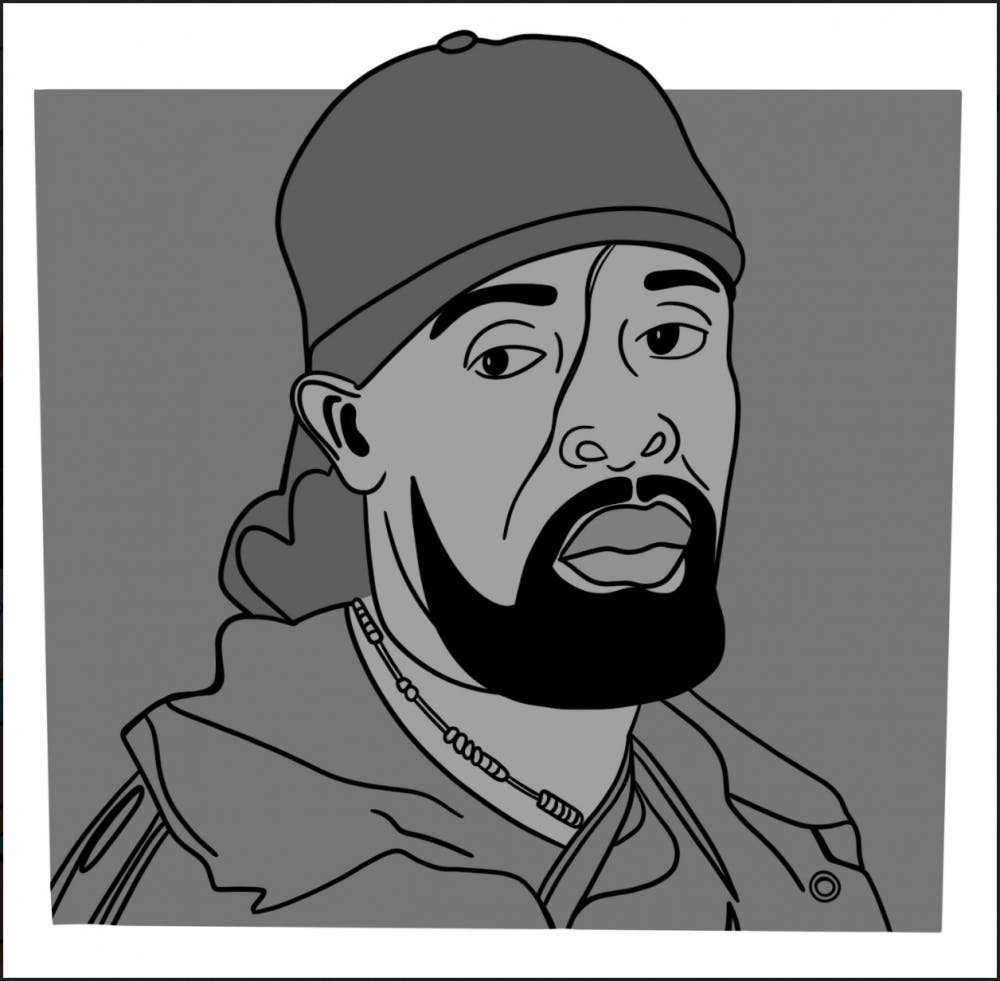Actor Michael K. Williams passed away earlier this month after a long battle with drug addiction. He was 54.
Williams played bootlegger Chalky White in the show “Boardwalk Empire.” His performance over five seasons remained steady, menacing and reliable — even when the show was sometimes anything but. He also posthumously received an Emmy nomination in September for his role in “Lovecraft Country.”
But a certain character will always showcase Williams’ legacy: Omar Little.
Omar Little from “The Wire” — the shotgun-wielding, openly gay thief with a moral code wears an air of complete nonchalance and security as he robs dope dealers, terrorizing the local gangs of Baltimore. “Citizens” uninvolved with the drug trade are safe from his wrath. Omar walks his grandmother to church on Sundays. He enjoys Honey Nut Cheerios. He commits a homicide every now and then.
In a show full of rich characters on both sides of the law, Omar was the most compelling of the bunch thanks to Williams’ elegantly matter-of-fact performance. He paired the character’s understatement with flashes of exuberance and dark humor during the show’s more violent scenes. When Omar whistles “Farmer in the Dell” with a poker-face as he approaches his victims, Williams lets the music do all of the talking as the dealers run. It is as if Omar is just on an afternoon stroll through the park, and not about to commit a handful of felonies.
“(Omar’s) gayness and his sexuality do not define him,” said Film and Media Culture Professor Jason Mittel, author of “Complex TV: The Poetics of Contemporary Television Storytelling.”
“He is the kind of character we have never seen on television before [...]. And you add on to that the striking charisma Michael K. Williams brought to the part. It’s just something about his performance that pops.”
But Williams’ performance as Omar was legendary for a reason beyond his charisma. You get the feeling that Williams did not take himself seriously, even as he gave a serious, beautiful performance. Williams understood that “The Wire” was always meant to both entertain and make you think.
“The Wire” started out as a more-than-usually thoughtful series about the moral ambiguity of the War on Drugs in Baltimore. But a cop show was pretty much all it was. We first see Baltimore through the eyes of alcoholic detective Jimmy McNulty (Dominic West) and foul-mouthed Bunk Moreland (Wendell Pierce), who assemble a team of flawed but mostly well-meaning police officers bent on pursuing drug-related homicides instead of street-dealing. Soon enough, though, their investigation leads them to the highest levers of power in the city, with drug money flowing from crooked state senators to street-level dealers all the way to local businesses.
After its first run of episodes, the show expanded to chronicle several parts of Baltimore society. Its second season switches its focus to the Polish-American dock workers who, mostly unwittingly, help import narcotics into the city. The third and fourth look at the public institutions that worsen the problems of drug abuse and violent crime in Baltimore, especially condemning the disinterested attitudes of the city’s public schools and city council towards winning the War on Drugs in a creative way.
Some potential viewers are intimidated when reading about the intricate economic, political and social dynamics displayed in “The Wire.” They may turn away in a similar manner to Virginia Woolf when she reacted to Joyce’s “Ulysses” — feeling “puzzled, bored, irritated and disillusioned by a queasy undergraduate scratching his pimples.”
But balanced with the show’s towering yet accessible intelligence is the other side of “The Wire”: the wittier, pulpier thread of the show which Williams’ portrayal of Omar best embodied.
There are other great figures in the show who, similar to Omar, seem like something out of a Raymond Chandler dime novel instead of real life. Take Stringer Bell (Idris Elba), a ruthless crime boss who reads “The Wealth of Nations” after night classes at a community college. Or there’s Brother Mouzone, a bow-tied assassin played by Michael Potts, who shoots a character named Cheese (Method Man) in the arm and then cries to the fleeing man “Good day to you, sir.”
But none of these performers could outshine Williams. In their investigation, McNulty and Bunk eventually ask Omar to go undercover for them in exchange for clemency. Omar adheres gladly, as one of the drug dealers being investigated murdered his lover, Brandon (Michael Kevin Darnall). As Omar testifies in court, he rebukes an attorney who claims the witness is a parasite festering on drug violence. “So are you, man,” Omar fires back. “I got the shotgun, you got the briefcase.”
Williams plays this scene both large and small. His words spark laughs in the courthouse, and his hands fidget with the tie Omar dons on top of his otherwise informal wear. But his eyes are deadly sincere, almost feigning confusion with his interrogator’s hypocrisy.
The late actor performed his signature role with the same qualities that made Omar such a compelling figure in the story. His acting style was dignified, warm, blithe, layered — and without even a trace of self-seriousness.
Jason Mittell is the Faculty Advisor to The Campus.
On Michael K. Williams and “The Wire”

Comments



